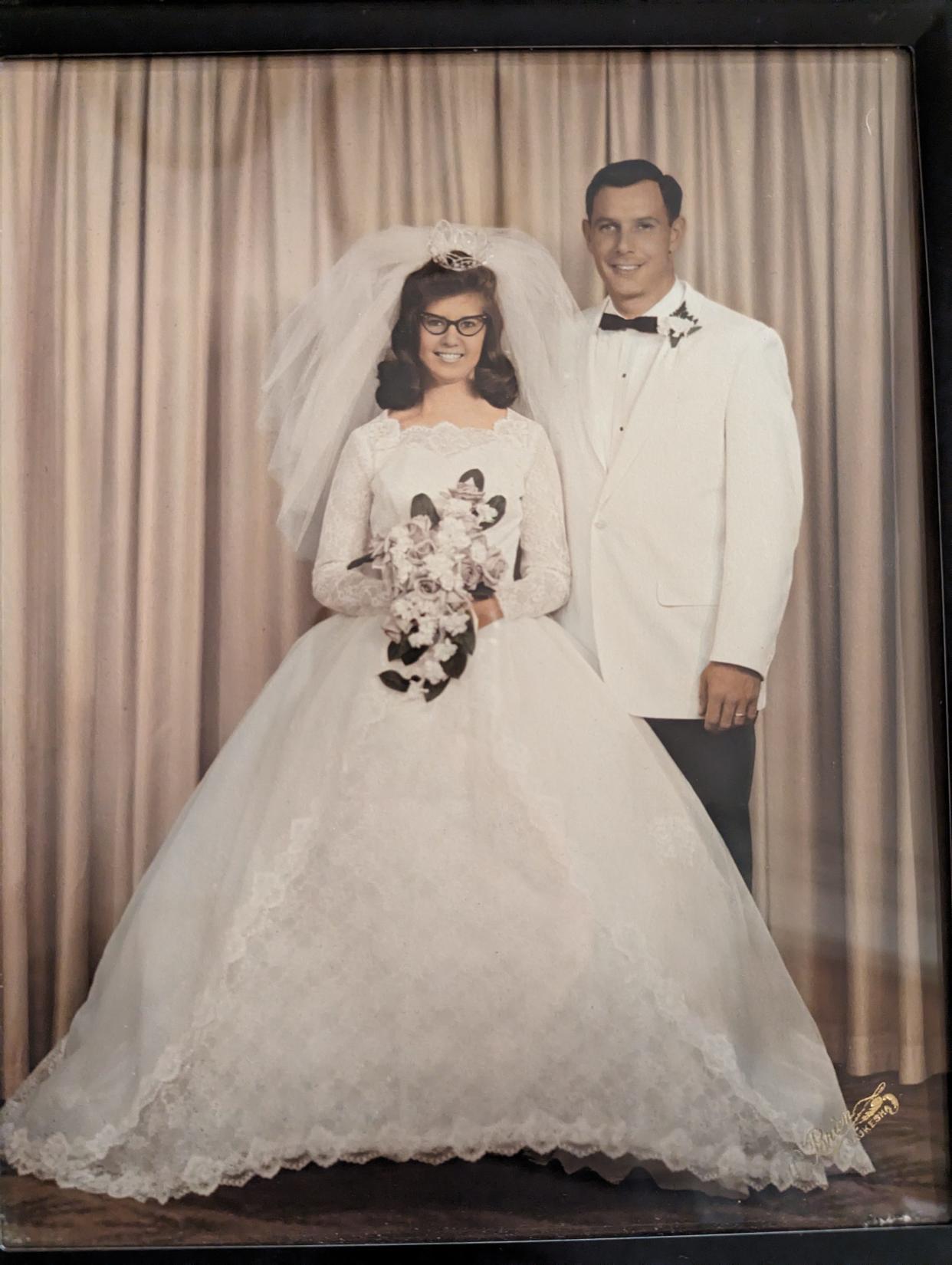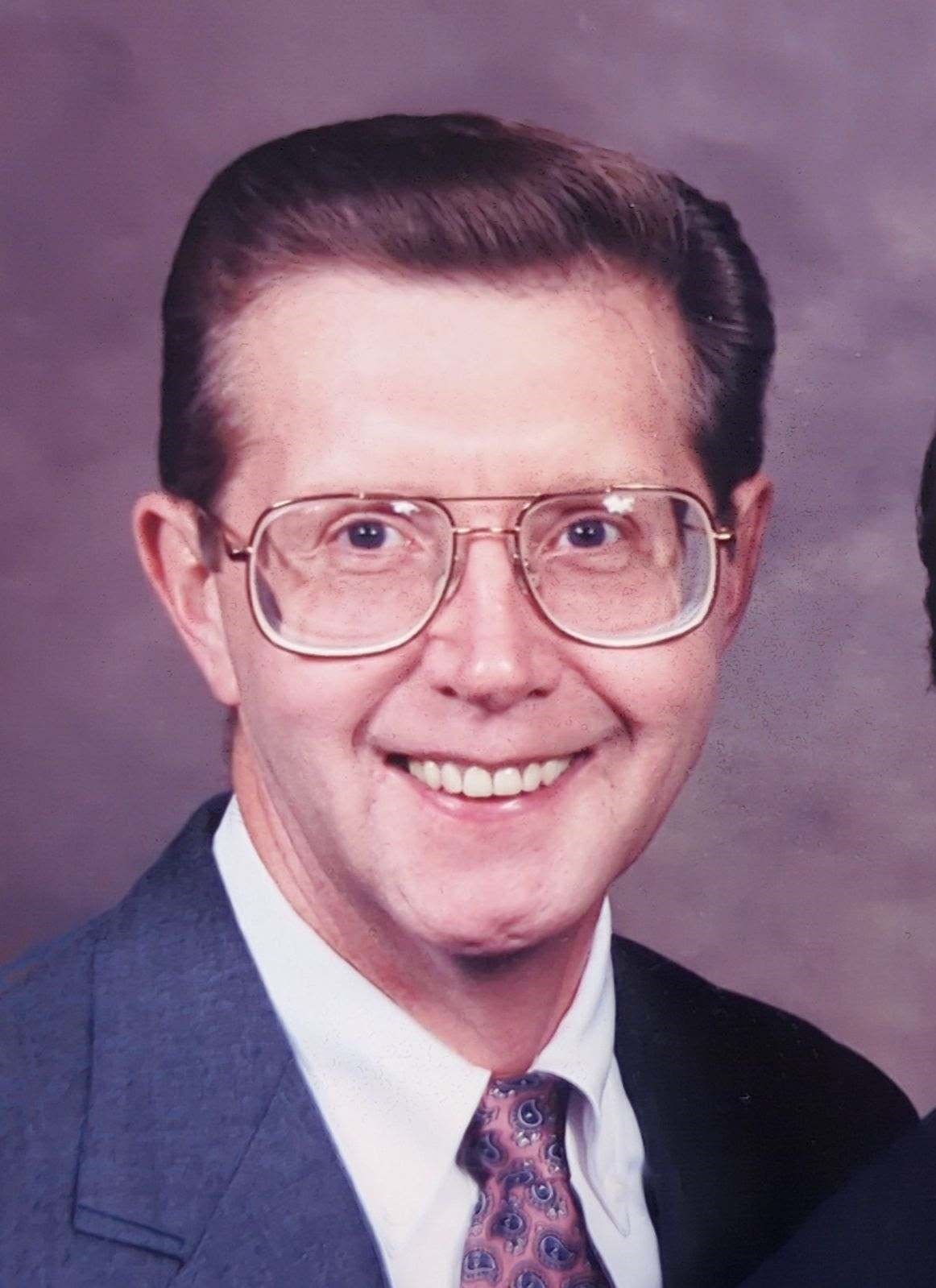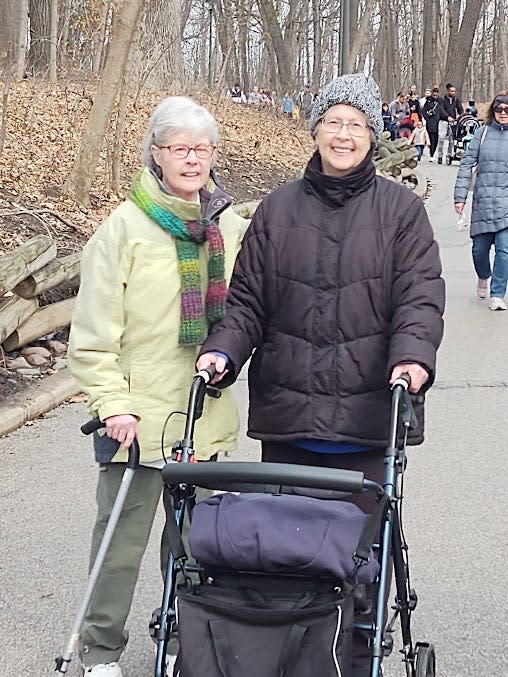This Oconomowoc woman is among the longest-surviving transplant patients of Mayo Clinic

Oconomowoc resident Charlotte Markle, 81, is what Mayo Clinic's Dr. Thomas Schwab calls a "transplant pioneer."
Markle is among the longest-surviving transplant patients of Mayo Clinic, which has campuses in Arizona, Florida and Minnesota and international locations. She received a kidney transplant at Mayo Clinic in Rochester, Minnesota, nearly 58 years ago on March 2, 1966.
At the time, this procedure was new with many unknowns and uncertainties for the recipient, said Schwab, who is a semi-retired transplant nephrologist at Mayo Clinic and has been Markle's longtime physician since 1986.
Schwab said the "unknowns and uncertainties" include disorders in the new kidney, immediate or delayed rejection, or unusual and deadly infections "due to suppression of one's usual infection defenses that are suppressed by the drugs used to prevent rejection."
Mayo Clinic's first kidney transplant was in 1963, which was also Mayo's first solid organ transplant of any kind.
In Wisconsin, the UW Health Kidney Transplant Program completed its first adult kidney transplant in 1966 while Froedtert & the Medical College of Wisconsin performed its first in 1967.
But partly due to her involvement in what was a new surgical procedure at the time, Markle's success has been an inspiration to others in the medical world, Schwab said.
"Many candidates for a kidney transplant have no appreciation for the positive outcome they may be afforded, and Charlotte's story is a real-life example we share to give patients and their families hope for the future," said Schwab.
'I am very proud to think I have had one that long ago'
Almost overnight in her 20s, Markle remembers having serious health problems. As a newlywed, she had a lot of nausea; she thought she was pregnant. But having convulsions soon after led her to Mayo Clinic, where she was diagnosed with irreversible chronic kidney failure.

Since her body was not able to handle the dialysis treatments, her only choice was a transplant, Markle said. "I was very nervous and scared, naturally. (A kidney transplant) was my only option," she said.
Her brother Roland Brooks agreed to donate his kidney.
Markle, who was 22 at the time, and Brooks, who was 12 years older, were a near-perfect match. Markle said they were such a good match, they were like twins. After her transplant surgery, said Markle, her kidney started working immediately.
Markle said she got her life back and is now living a healthy life. "I owe my life to my brother. What more can I say? If it was not for him, I would not be here," she said.
Markle's excellent transplant outcome inspires research
Markle said she is impressed with how far transplants have come since hers in the 1960s.
Schwab said the success of Markle's procedure inspires transplant teams to conduct ongoing research in surgical techniques and medical treatments to improve long-term outcomes for new transplant recipients.
Schwab said that through research, the problems of having infections, knowing the optimal drug doses and timing and monitoring blood levels of those drugs "have nearly all been able to be overcome through ongoing worldwide clinical transplant research."
He also said the long-term risks of lifelong immunosuppression ― a weakened immune system ― were "a complete unknown for transplant teams, recipients and their caregivers." He said the majority of these issues have been recognized and the potential complications overcome. He said now if someone has advanced kidney failure, a kidney transplant is the solution.
Robotic kidney transplant surgery is an alternate option
According to Mayo Clinic's website, there is also a robotic kidney transplant surgery which allows for a smaller incision. The smaller incision, according to the website, lowers the risk of infection or developing a hernia. "This is a benefit for people who have had prior surgery in the lower abdomen or who are carrying some extra weight," said Julie Heimbach, M.D. and director of the Mayo Clinic Transplant Center in Rochester.
Schwab said Markle provides "hope to candidates" receiving a kidney transplant so "they can have their health restored to near normal for an indefinite period of time where they can enjoy their lives, families, occupations as well as all their life's experiences."

Living kidney donors have increased
Schwab said that Markle has also inspired living kidney donation, which is much more common as a recipient's friends or family can more easily become donors.
That cuts down considerably on the wait time.
The wait time for a kidney transplant from a deceased donor can be years, but as little as weeks or months from a living donor, Schwab said.
Through resources like the National Kidney Registry, it is easier for people to become donors and get matched with recipients who need a kidney, said Heimbach.
From 2014 to 2019, the number of living donor kidney transplants in the U.S. increased 24% and the number of living donor liver transplants rose 87.1 %, according to data from the Organ Procurement and Transplantation Network.
"Living donor kidney transplantation has evolved to include national programs for kidney paired donation, which allow people who are not a match with their intended recipient to donate to another candidate who also has an incompatible donor who can be a match for the other recipient," Heimbach said.
But while living donors are increasing, there is still a need for donors.
There are more than 90,000 Americans on the kidney transplant waiting list, but in 2022, just 26,309 — about 29% — were able to get a kidney, according to the American Kidney Fund.
The National Kidney Association provides resources and works to prevent kidney disease
To become a living donor or to find out more about kidney disease, the National Kidney Association provides resources about becoming a donor.
Mike Crowley, CEO of the National Kidney Foundation of Wisconsin, said the organization's website lists four locations with all the contact information to become a living donor. He said calling a transplant center is a place to begin and that all donors need a full physical.
Crowley also said there is a "paired kidney exchange program that allows you to donate to someone." If a donor is not a match for the person needing a transplant, they can still help. If the person you donate the kidney to is not a match, that person moves to the top of the waiting list.
According to the National Kidney Association website, about 80% of the people who need an organ transplant in Wisconsin need a kidney transplant.
"I could not have had a better brother," said Markle. "I have no words for how blessed I am."
For more information on kidney and organ donation
For more information on kidney and organ donations, visit www.kidney.org or donatelifewisconsin.org.
For more information on the National Kidney Foundation of Wisconsin
For more information on the National Kidney Foundation of Wisconsin, visit https://www.kidneywi.org.
Cathy Kozlowicz can be reached at 262-361-9132 or cathy.kozlowicz@jrn.com. Follow her on X at @kozlowicz_cathy.
This article originally appeared on Milwaukee Journal Sentinel: This Oconomowoc woman received a kidney transplant nearly 60 years ago
